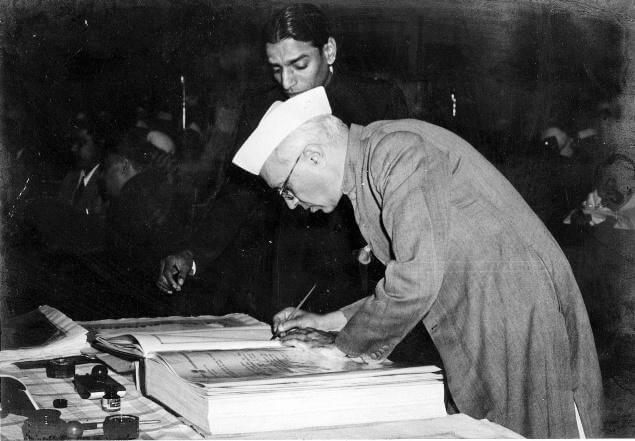Important points Constitution of india
The following points summarise the constitution of india and publishes its important points, you can download the same as PDF in case required. This posts identifies top ten pivotal points about our constitution and its facts. We believe this information will be useful during your preparation of UPSC and other major exam preparation contents. This article is simed at providing simple information related to the constitution of India.
India is a Sovereign Socialist Secular Democratic Republic with a parliamentary system of government.
Constitution of India was adopted by the Constituent Assembly on 26th November, 1949
Indian Constitution came into force into force on 26th January, 1950
The Constitution provides for a Parliamentary form of government which is federal in structure with certain unitary features
The constitutional head of the Executive of the Union is the President.
As per Article 79 of the Constitution, the council of the Parliament of the Union consists of the President and two Houses known as the Council of States (Rajya Sabha) and the House of the People (Lok Sabha).
Article 74(1) of the Constitution provides that there shall be a Council of Ministers with the Prime Minister as its head to aid and advise the President, who shall exercise his/her functions in accordance to the advice.
The real executive power is vested in the Council of Ministers with the Prime Minister as its head.
The Constitution applies to the State of Jammu and Kashmir with certain
exceptions and modifications as provided in article 370 and the Constitution
(Application to Jammu and Kashmir) Order, 1954.
Constitution is a living document, an instrument which makes the government systems work. Its flexibility lies in its amendments.

